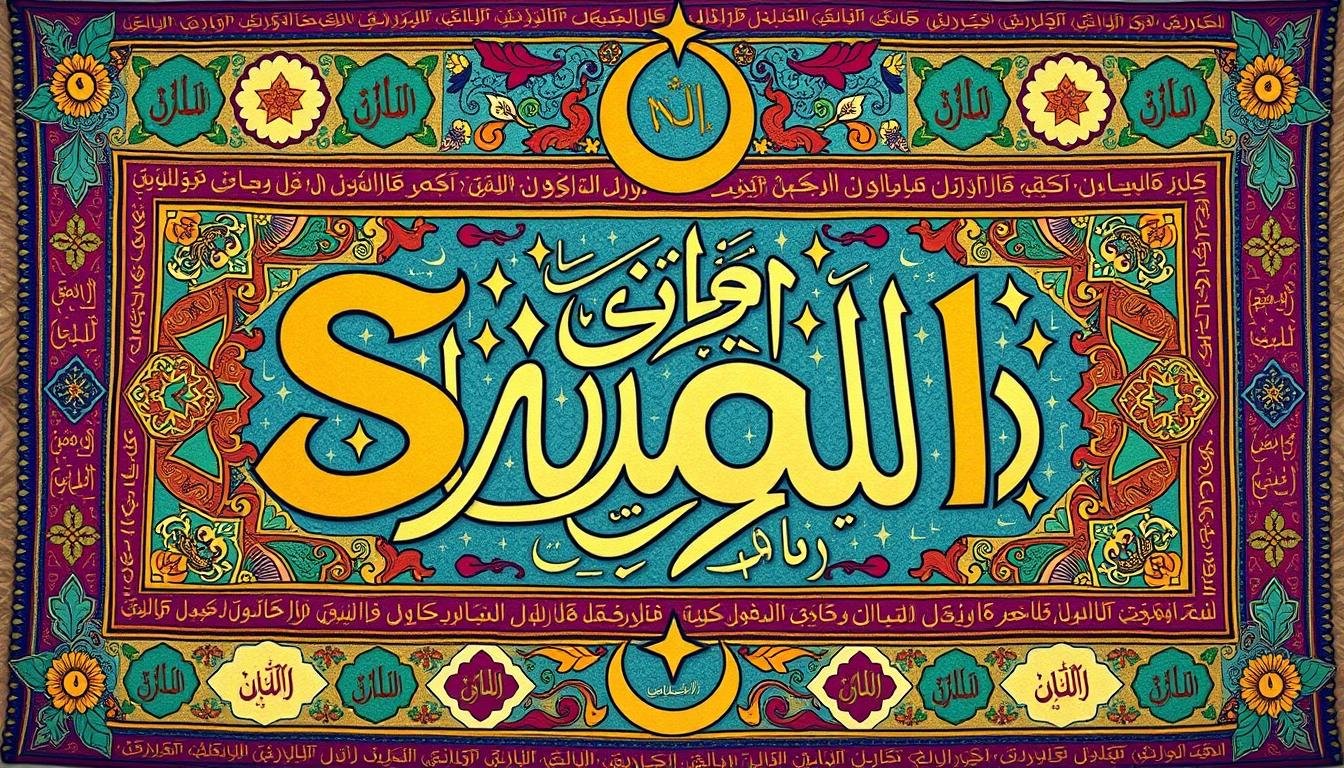When you hear the name Shah, do you think of royalty? Or do you wonder about its deeper meaning? The Shah name is used in many places and has a rich history. It’s not just a simple surname but a title with deep roots.
Understanding if Shah is a Muslim name means looking at its Shah name origin, cultural importance, and history. It comes from ancient Persian, meaning ‘king’. It’s also common among Muslims in South Asia. So, what does this name really mean today?
Exploring the Shah cultural significance shows a complex story. It involves economics, society, and politics. This name has changed over time, through different jobs, families, and cultures.
Let’s uncover its history. Is the Muslim name Shah a sign of its past or just a modern view?
Understanding the Origin of the Name Shah
The Shah name comes from Persian culture. It means “king” in Persian. This name was once given to emperors and rulers in Persia.
It shows the amazing history of Shah. The name is also important in South Asia.
Historical Background of the Name Shah
The name Shah has changed over time. In places like Gujarat and Rajasthan in India, it means “merchant.” This comes from the Gujarati word “sah,” which means “merchant.”
This shows how Shah became important in trade. It was especially valued by Jain and Hindu merchants. Old inscriptions from the 12th and 13th centuries also mention “Sahu,” showing its link to trade.
This name has two meanings: a royal title and a merchant’s name. This shows the deep history and importance of the Shah name in different cultures.
The Meaning of Shah in Persian Culture
The term “Shah” is very important in Persian culture. It means more than just a title for kings. It stands for respect, power, and nobility.
In Iran, the Shah title is key to the country’s identity and rule. This is especially true during the Pahlavi dynasty’s reign. It has become a symbol deeply connected to Persian heritage.
Cultural Significance of Shah in Persia
The title “Shah” is linked to famous historical figures. It shows its grandeur and authority. For example, Shah Jahan built the Taj Mahal.
This shows the term’s historical importance in Iran’s memory. From old times, it was the highest authority. It was often called Shahanshah, meaning “King of Kings,” showing the greatness of ancient Persian empires.
This influence goes beyond titles. It touches on cultural and religious aspects of identity. The Shah title’s legacy still affects modern Iranians.
It helps us understand Persian culture’s complexities. It shows how this term is key to grasping Persian culture’s depth. It reflects a rich history that shapes today’s views and national pride.
Shah in South Asia
The Shah name is big in India and Pakistan. It’s found in many cultures, like Muslims, Hindus, and Jains. This shows how diverse South Asia is.

Adoption of Shah in India and Pakistan
About 5,123,665 people worldwide have the surname Shah. In Pakistan, 3,150,840 people have this name. That’s 1 in 57 people.
In India, 1,039,805 people share the Shah name. That’s 1 in 738 people. The Shah surname comes from the Jain community in India. This shows how different cultures mix in Urdu-speaking areas.
The Shah name means “king” or “emperor” in Persian. Names like “Shah Sahu” show how it fits into local cultures. Most Shahs, 93%, live in South Asia. This shows its deep connection to the area.
Religious Connotations Associated with Shah
The name Shah has deep religious meanings in many cultures. It comes from Persian and is often linked to Islam. This makes Shah a key name in Muslim communities.
It’s seen as a symbol of royalty. Shah as a Muslim name means leadership and authority. This makes it a big part of Islamic heritage.
Muslim Identity of Shah
Shah is known in Muslim communities but is not only for Islam. Hindus also use this name, showing it’s versatile across religions. It’s one of 100 Hindu baby boy names inspired by Lord Ganesha.
Shah stands out for its themes of kingship and respect. It doesn’t fit into lists of names meaning ‘victory’ or inspired by famous figures. But it’s special for its focus on authority and nobility.
In Islamic contexts, Shah’s significance is clear. It connects to Islamic leadership and royal status. Its lasting impact in Islamic heritage makes it a popular choice for families. It highlights the religious ties to this name.
Variations and Similar Names
The name Shah has many forms across cultures, showing a rich history. Names like “Sahu,” “Sheth,” and “Sah” have special meanings in their cultures. In Gujarat, “sah” means a merchant, showing the value of trade.
“Shah” as a surname means a person’s status. It could be from royal blood or respected work.
Exploration of Related Names
Names like “Shahbaz,” “Shahram,” and “Shahzad” have their own meanings. They often point to royal blood or leadership. Names like “Shamshad” and “Shahnaz” show Persian influence, blending cultures.
These names are not just personal. They also show a shared identity shaped by history and culture.
Shah in Politics and Leadership
The Shah name is closely tied to leadership in politics. Many Shahs have left big marks on how countries are run. Mohammad Reza Pahlavi, for example, was the Shah of Iran from 1941 to 1979.
He brought big changes, like the White Revolution, to modernize Iran. Iran’s economy grew a lot under his rule. By the 1970s, Iran’s growth was even better than the US and UK.

Reza Shah Pahlavi, his dad, also made a big impact. He started the Pahlavi dynasty and was Shah from 1925 to 1941. He worked hard to modernize Persia from a young age.
The Shah name is linked to many influential leaders. This shows a strong connection between the name and leadership in politics.
Today, names like Amit Shah and Balen Shah show the Shah name’s lasting impact. They show how Shahs continue to shape politics today. Their work and values have a lasting effect on future generations.
Modern Relevance of the Name Shah
The name Shah is still important today. It comes from Persian history, where it meant kings and leaders. Now, it’s a common name in many fields, like business and entertainment.
It stands for strength and leadership. This makes Shah a symbol of South Asian culture worldwide.
Today, Shah talks about global and diverse cultures. As people move and mix, Shah shows both old and new values. It’s now seen as a name for anyone, showing it’s open to all.
Shah sparks interest and respect. It leads to studies on how cultures blend and change.
The Place of Shah in Name Studies
The etymology of Shah shows how language, culture, and identity mix. This name is important in many places and times. It’s linked to famous people and traditions.
Linguistic studies look into Shah’s origins and meanings. They explore its roots in Persian, Sanskrit, and local dialects. These studies help us understand how names shape our social roles and identities.
Etymological Studies and Linguistics
Scholars dive into Shah’s history, seeing its role in Iranian and South Asian cultures. They see names as signs of identity, showing who we are in society. Shah, meaning a ruler, shows its high status.
This research deepens our understanding of cultural heritage. It shows how names carry historical stories.
Conclusion: Is Shah A Muslim Name?
The question “Is Shah a Muslim name?” is complex. It looks at history and today’s world. The name Shah comes from Persian culture, meaning royal or leader.
In Muslim communities, Shah is common. It’s more than a religious name. It shows a deep cultural meaning.
The Shah name is complex. It mixes heritage, social status, and history. This makes it special in many ways.
Summary of Findings
The Shah name is important in South Asia. It’s tied to Islamic culture but also shows diversity. Family, taste, and changing name meanings shape its use.
This makes Shah a symbol of identity, not just a religious name. As the world changes, Shah will stay important in many places.
FAQ
What is the origin of the name Shah?
Is Shah primarily a Muslim name?
What is the cultural significance of the name Shah in Persia?
How is the name Shah adopted in India and Pakistan?
Does the name Shah carry any religious implications?
Are there variations of the name Shah?
Who are some prominent political figures with the name Shah?
What is the modern relevance of the name Shah?
How do scholars study the etymology of the name Shah?

Embracing Faith, One Insight at a Time!
The teachings of the Quran have always guided my path. With a deep passion for Islamic knowledge, I strive to blend the wisdom of tradition with the relevance of today, making the timeless messages of Islam accessible and meaningful for everyone.
Muslim Culture Hub is my platform to share historical insights and thought-provoking articles, exploring both well-known and lesser-discussed aspects of Islamic culture and beliefs. My mission is to create an inclusive online space where everyone can learn, strengthen their faith, and connect with the profound message of Islam.
Join the journey!
May peace be upon you.








